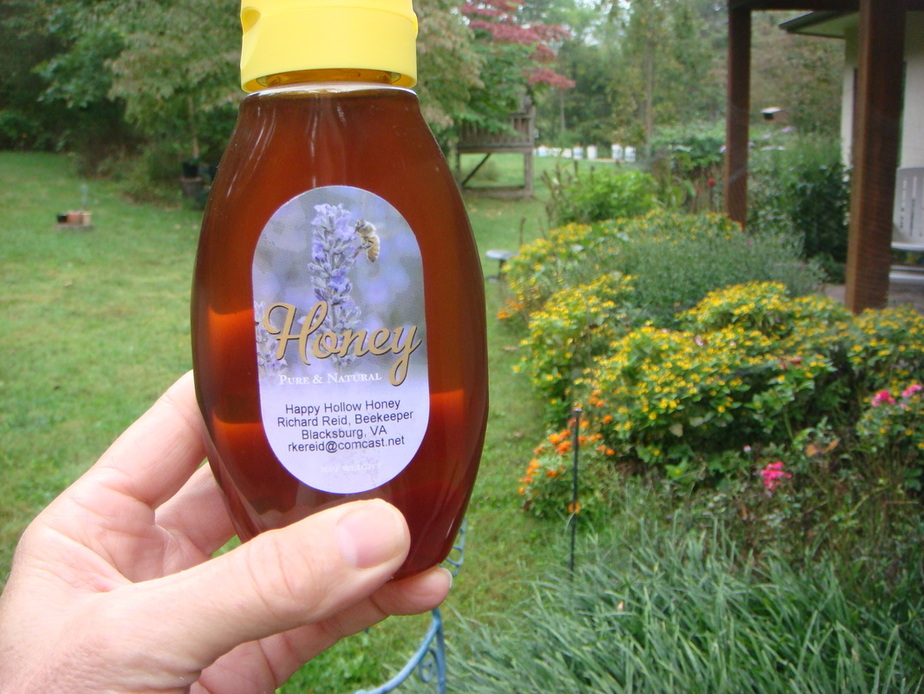The honey in our region is chiefly derived from nectar flows in the spring. Infrequently, we will have summer flows when it rains in June, July, or August. Our honey usually consists of Tulip Poplar, Black Locust, Redbud, Autumn Olive and numerous other nectars from trees and wildflowers. The spring honey is usually reddish colored, unless it is predominantly Black Locust or Autumn Olive, which are lighter. During the summer we usually have a dearth with it's absence of nectar, though some years we may be lucky enough to get rain that will sustain some wildflowers. In late summer and early fall, if the weather and moisture levels are conducive, we can get small amounts of goldenrod, wingstem, aster, and knapweed honey. The later summer/fall honeys are usually lighter in color.
If your honey crystallizes and you would like to liquefy it, put the bottle in a pan of warm water no higher than 110 F. for several hours. Many people enjoy crystallized honey as it is spreadable.
We extract our honey using a centrifugal extractor that spins the honey out of the comb. It then flows into a clarifying tank with baffles. Before it passes each baffle, some of the wax particles and air settles out. The honey is then pumped to stainless steel bottling tanks where any remaining fine wax particles and air bubbles rise to the top. The honey is bottled by hand straight out of these tanks. We don't use any filters, strainers, or high temperatures, and because of this our honey is sometimes naturally hazy.
If your honey crystallizes and you would like to liquefy it, put the bottle in a pan of warm water no higher than 110 F. for several hours. Many people enjoy crystallized honey as it is spreadable.
We extract our honey using a centrifugal extractor that spins the honey out of the comb. It then flows into a clarifying tank with baffles. Before it passes each baffle, some of the wax particles and air settles out. The honey is then pumped to stainless steel bottling tanks where any remaining fine wax particles and air bubbles rise to the top. The honey is bottled by hand straight out of these tanks. We don't use any filters, strainers, or high temperatures, and because of this our honey is sometimes naturally hazy.
Our Honey is sold at Blacksburg (formerly Heavener) Hardware, Eats Natural Foods, Annie Kay's Main St Market, Glade Road Growing, and Smithfield Plantation in Blacksburg, VA, and Cottage Farm General Store in Cambria. You can also find our honey seasonally in the brews at Eastern Divide Brewing Co. and Rising Silo Brewery, both in Blacksburg.

Natural Wildflower Honey- We sell our honey locally in Blacksburg, VA
